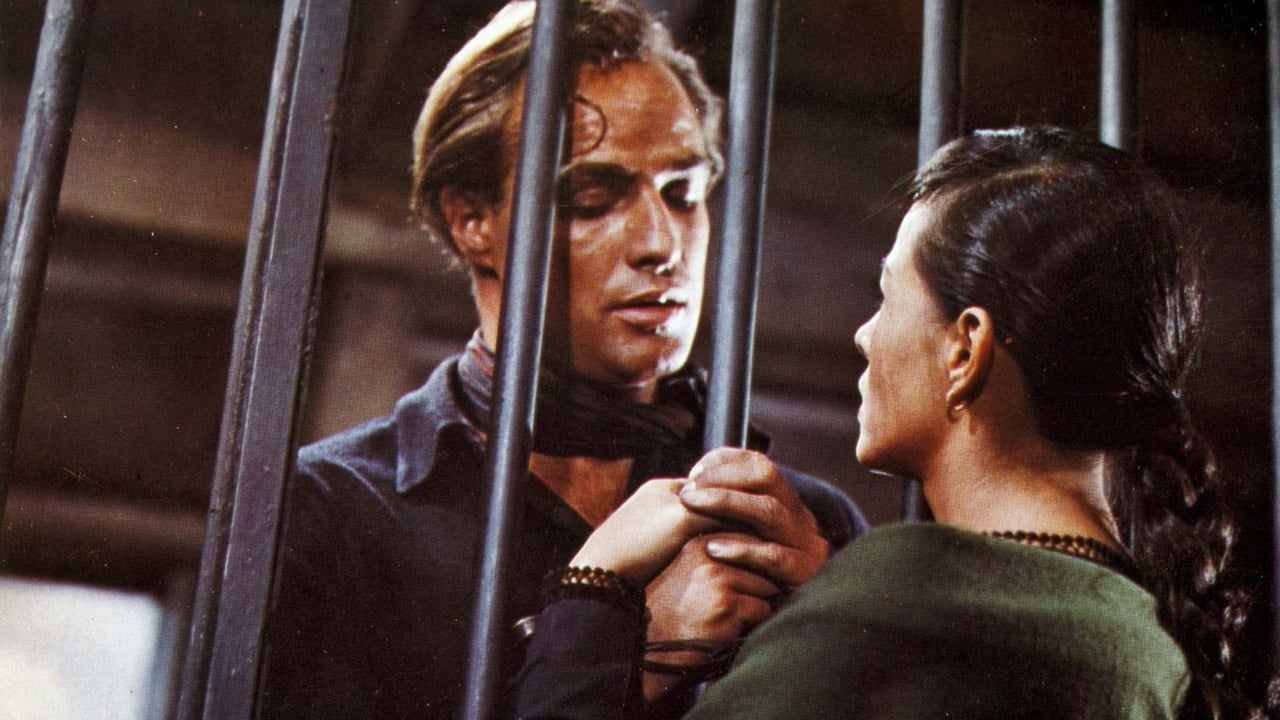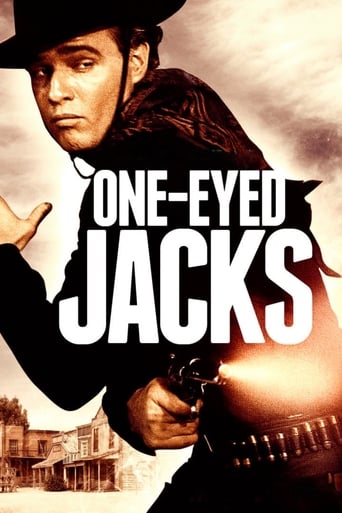guylyons
I loved this film,seen it at least three times. I could kidnap western fans, starve them, then force them to watch this classic. Afterwards they would probably reward me for what they went through. The film has everything, a great script, top notch acting, and a very believable story.
MisterWhiplash
Long only available in the very occasional revival-house screening, or in public domain versions (which I decidedly avoided over the years despite being a fan of the good Brando films), now that Criterion has put out a remastered version (thanks Spielberg/Scorsese for being movie heroes again!) we can try and see the movie for what it is as opposed to it being some curio or other: the only film Brando directed in his long but peak-and-valley career. What I think this is is... quite good, and maybe a full third of it is truly magnificent. I have my criticisms of it, but the short of it I can say is that if you like westerns with an edge, or like Brando or Karl Malden or any of the cast - and I'll get to them next paragraph - you should see it, despite its flaws.It's nearly impossible to write about this without mentioning the traces of Sam Peckinpah, who wrote the first approved draft of the adaptation of the book by Charles Neider, and especially Stanley Kubrick, who was hired as director and had even signed a contract and was perhaps just weeks away from a start date to shoot before leaving. I don't know how much of Kubrick one can detect, though there are a few key cast members that leave a trace of his casting - future Kubrick icon Slim Pickens relishes a potentially one-note role, and from The Killing Elisha Cooke Jr has a great moment as a bank teller and the wonderfully deranged Timothy Carey as a real slime-ball townie in Monterrey - but I think that for what Brando was really after, it may have been a good idea to not have Kubrick around. As for Peckinpah... um... it sure isn't shy in its violence and supporting cast full of outlaws.According to a special feature on the Criterion DVD, the script wasn't finished at the start of production, and considering how Kubrick operated this would not do, leading Brando to a long but probably more fruitful improvisational method (the kind that isn't uncommon with those who can do it, like Scorsese). The clearest sign that this is Brando's show is that he lets scenes go on for a while, longer than many studio directors would've allowed at the time, and there's also an attention for actors to explore a scene or a moment. Brando in particular as the title character Rio, who's in this story out to get payback at his former best friend who left him for dead in the desert following a (highly entertaining/thrilling bank robbery), is all about using his hands; one might recall Brando doing things with his hands in a lot of films - it may just be an actor's trick to keep a scene from being too stiff or constrained (i.e. the glove as Brando and Saint walk along in on the Waterfront, or of course the cat in Godfather) - but here it reaches a sort of intentionally poetic peak.The core of the story with these two guys, Rio as the unruly anti-hero who is planning to rob the bank in the town of Monterrey with Ben Johnson (he is especially conniving in the film, playing every moment as both realistic/naturalistic and menacing, without seeming to do much except smile), and Dad Longworth, the guy who decided to "leave the life behind" as the cliché might go in certain crime stories outside of Westerns, and how their moral values come into play in this story. Does Rio move on with this girl who happens to be the (step)-daughter of Dad as he's married a Mexican? Or does Dad let go of his past, which seems to have not really left him when one looks at the 'other' side? Dad sells out being the Sheriff, which is a way of basically being a politician, is a nasty way to go about it, and though it is obvious how his betrayal is complete to Rio simply by continuing to lie about it (interesting this moment, which seems crucial to me for the film and is acted so well with so much with little said between the actors, was forced on Brando by the studio), while many other characters like Johnson and Pickens and even Carey in his irredeemable ways, are more honest as villains than 'Dad' (even that name is suggestive of a lot).There's so much rich material here that it pains me that the other part that Brando is betting on with this story - whether Kubrick did too I'm not sure, maybe, I'd wager, he butt heads the most with the star over this - is the relationship with the Mexican girl. It's not that the actress is bad, far from it, she ends up being believable, but the writing never sold me on why she falls for Rio, and why especially a particular revelation happens later on (sure, for 1961 we can't see much, but come on). Because of this, despite all the dramatic magnetism Brando can do as an actor with her, and he does quite a bit like in his description of what prison was like, the very end rings hollow (also a studio re-shoot). It's the main thing that keeps this from achieving its fuller potential as not only subversive western, but a great one too.Still, this has a lot of excitement, terrific shoot-outs, memorable characters, and dialog that, written or not, gives the actors a lot to do. I don't know if it completely points the way towards New Hollywood, but it does paint a picture for where Westerns, or crime films in general, could go following years of having totally black and white morality. Some of that's forced on the film, but not enough that one can't see why such a difficult but strikingly original artist as Brando wanted to do this in the first place.
shotokan-cat
A seriously underrated film, Marlon Brando again brings his characteristic masculine energy to the screen with superb acting, playing the part of a bank robber named Rio - another character which stirs the mind into a state of cognitive dissonance, an anti-hero blurring the line between the good and the bad. The supporting actors also give a great performance, and the cinematography is notably good. Directed by Brando himself, the plot presents a variety of characters who have much more depth than they may at first seem to possess. It is a brilliant example of a Western, which not only embraces the genre but excels within it's medium. Sometimes perhaps the pacing could have been better thought out, but overall this is a film that is definitely worth watching.
Jeff (actionrating.com)
See it. Where are all those people who said Marlon Brando couldn't play a cowboy? This is a long epic western, unlike anything you've ever seen before. It's the Ben-Hur of westerns. Believe it or not, Marlon Brando is incredible as a cowboy. And this movie is incredible. The only film Brando ever directed, this is a tale of treachery, anguish, and revenge. It has a great script full of unforgettable quotes that will stick with you forever. And just to clarify, the character's name is not "One Eyed Jack." The meaning is much deeper. In a sense, we are all two-faced, and one side is ugly and eye-less. We are all one-eyed Jack's. Pretty deep for a western. Now for the part you really care about. The action is spread out because the movie is long. It is a little slow toward the middle, but there are multiple gunfights and plenty of danger and suspense throughout. This movie really has it all, and I highly recommend it.

